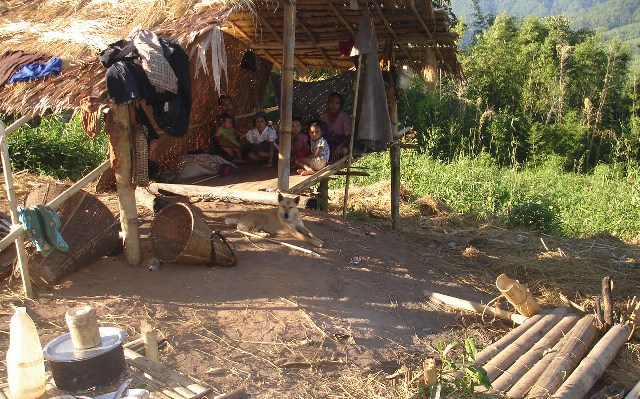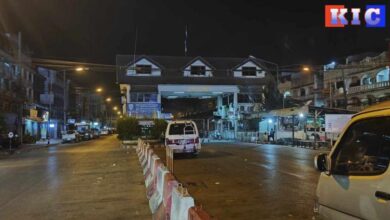Karen groups concerned cross-border humanitarian aid decreasing

More than 150 representatives and observers from 40 Karen organizations from inside Burma, along the Thai-Burma border and overseas who took part in the 9th Karen Unity Seminar voiced their concern that there has been a significant decrease in humanitarian aid for communities at risk in Karen state.
Karen representatives at the Seminar expressed their concerns that the Karen National Union peace building process with the Burma government is still has not moved beyond the first stage. The representatives said that ceasefire agreement between the government and the KNU is still bogged down in discussions and as yet there has not been any real political dialogue.
The Karen National Unity Seminal representatives said they are also worried that much needed funding for communities in Burma will be decreased and they strongly urged the international community to continue its cross-border humanitarian assistance until real peace is achieved in Burma.
The 9th Karen national unity seminar was held last week at the KNU’s Brigade 7 in Hlaingbwe Township, Karen State. According to a statement released after the seminar, all representatives from the 40 organizations agreed that humanitarian aid for cross border communities must continue.
Speaking to Karen News, Saw Lwin Oo, a Seminar spokesperson said.
“According to the Karen Women Organization (KWO) and the Karen Education Department (KED), international humanitarian aid that they have been receiving has decreased by as much as a half.”
Saw Lwin Oo said that as the European Union, the US and Australia lifted sanctions against Burma many non-government organizations (NGOs) had shifted their aid and resources to inside Burma and had started to reduce its humanitarian assistance to refugees on the Thai Burma border in 2012.
A statement released by the National Unity Seminar organizers confirmed that the 150 representatives attending the unity seminar discussed issues that included Karen national political goals, the ongoing peace negotiation process, economic development and investment projects in Karen-populated areas, humanitarian assistance, refugee repatriation and the role of civil society organizations.
Seminar representatives also discussed at length and gave support to the Karen National Union’s Four-Step Peace Plan —- 1. preliminary ceasefire stage, 2. durable ceasefire stage, 3. initial political dialogue, resolution of underlying political problems, and national reconciliation, 4. political participation – and encouraged both the government and the KNU to establish a time-bound peace process towards the implementation of genuine political negotiations, and to include economic and land issues for discussion in its negotiation process.
Speaking to Karen News, the seminar committee chairman, Padoh Saw Hla Tun said.
“In the peace implementing process, we all agreed to avoid any negative impacts on the Karen people and we also want to achieve a good result in the peace implementing process between the KNU and the Burma government.”
Seminar representatives welcomed the Karen Refugees Committee’s position statement on its refugee repatriation plan that insists on a dignified, voluntary return of refugees in accordance with the policies and guidelines of the United Nations High Commissioner for Refugees.
Seminar representatives agreed on a common position that in building national unity, the KNU will lead with a political objective based on national equality, a right for self-determination, democracy and a genuine federal union.




